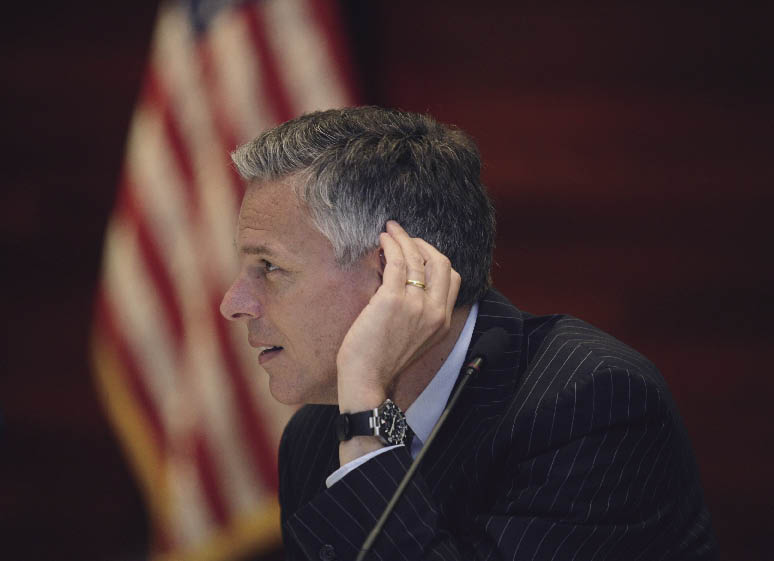|
The issue of China's sovereignty over Taiwan and Tibet has long been considered a highly sensitive internal matter that is not to be interfered with by other countries. There was no doubt then that those two U.S. actions would strike a cord of concern in Beijing. "The recent moves taken by the United States had seriously violated the principles set out in the three China-U.S. Joint Communiqués and the China-U.S. Joint Statement," said Foreign Minister Yang Jiechi at the March 7 press conference. "They have undermined China's core interests and the overall course of China-US relations."
Signed in the late 1970s and early 1980s, the three China-US Joint Communiqués are regarded as the primary guidelines for the development of bilateral relations. In the communiqués, the U.S. acknowledged that Taiwan and Tibet are part of Chinese territory.
As events were unfolding, the Foreign Ministry of China summoned the US Ambassador to China Jon M. Huntsman to put forth Beijing's stance on the situation. Meanwhile, the Chinese government considered sanctions against U.S. companies involved in the arms sales to Taiwan, (including Boeing), as well as immediate suspension of all scheduled exchanges between the Chinese and U.S. armed forces.
Some Western media saw China's reaction as "retaliatory." The London-based Financial Times linked China's response to its rapid rise in economic prowess and growing nationalist sentiment, saying "Beijing was feeling a new found sense of strength, and was testing that in its dealings with the United States and other countries."
The Chinese Foreign Minister retorted that his nation's response reflected a "firm" attitude toward a principled issue rather than an opportunistic "tough stance." "As for maintaining state-to-state relations, the key is sticking to 'principles'." He made these remarks on questions presented by a journalist from CNN, adding that the principle of Chinese diplomacy is to defend China's sovereignty, security and development interests, and to promote world peace through this development, which is also the fundamental principle for all international relations. "It is unfair to label actions safeguarding one's own core national interests and dignity as 'tough' and to take it for granted to infringe on the interests of other countries," the minister continued.
 |
|
Jon M. Huntsman is listening: let's keep diplomatic channels open. Cnsphoto |
World's Two Biggest Fish Swim in the Same Pond
On March 2, U.S. Deputy Secretary of State James Steinberg and the National Security Council's Senior Director for Asian Affairs Jeffrey Bader arrived in Beijing to discuss a series of issues that concerned the two countries. These two senior officials in the Obama administration are key members of the president's cabinet charged with formulating America's policies regarding China. James Steinberg is a leading expert on Asia-Pacific and China affairs, and is second only to Secretary of State Hillary Rodham Clinton in the State Department. His previous role as ambassador to China placed him as Obama's top China adviser. "Their visit reveals high-level communication between the two countries remains unimpeded," said researcher Zhang Guoqing. "At times when differences and discord emerge between the two nations, both sides can take a pragmatic attitude, and keep diplomatic channels open."
| 